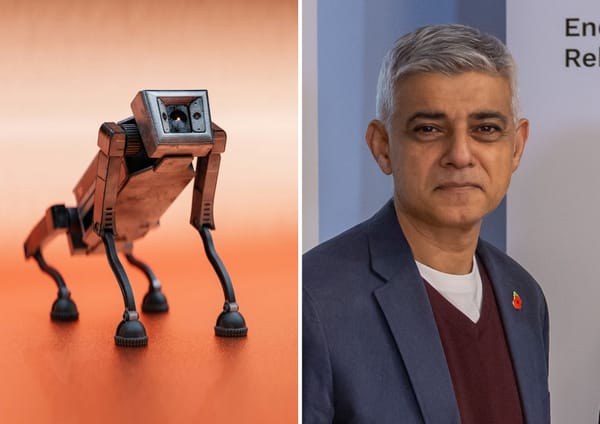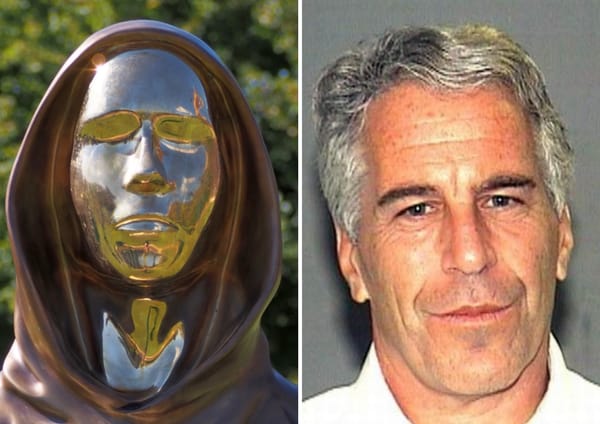Bureaucracy and the bomb: Britain's nuclear weapons manufacturer has an ESG programme
From planting orchards at nuclear bases to supporting pollinators, find out about the Atomic Weapons Establishment's slightly incongruous ESG drive.
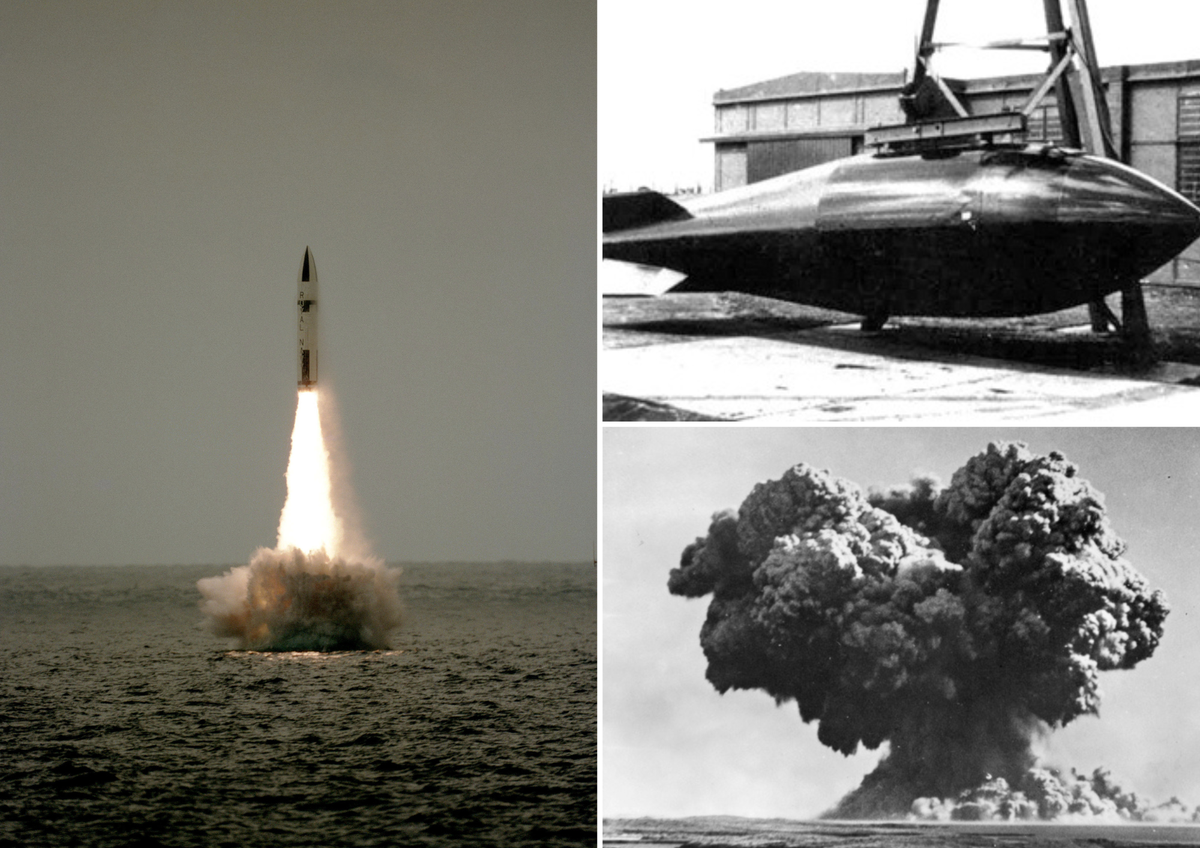
You would think the ESG impact of a nuclear war is quite clear: the environment will be devastated, society wiped out and governance abandoned as survivors are thrown back into the Stone Age.
But that hasn't stopped the organisation that builds and maintains Britain's nuclear arsenal from spending years conducting highly bureaucratic and ever-so-slightly-weird ESG assessments.
This year, the Atomic Weapons Establishment will spend £71,640 of taxpayers' money on the "interviewing, copywriting and design" of the third edition of its ESG report, according to a government tender document. That money will go to a big shiny communications agency headquartered in London, which we have decided not to name.
It's easy to understand why a bank or corporation might want to enhance its image by touting its alleged green credentials and engaging in some virtue signaling, particularly when pressured by activist investors and increasingly zealous ESG-focused regulators.
What's less clear is the utility of asking an organisation that maintains weapons of mass destruction which could wipe out every single human on Earth to record the number of paper cups it uses each year.
But hey. We don't make the rules.
How I learned to stop worrying and love the bombmakers
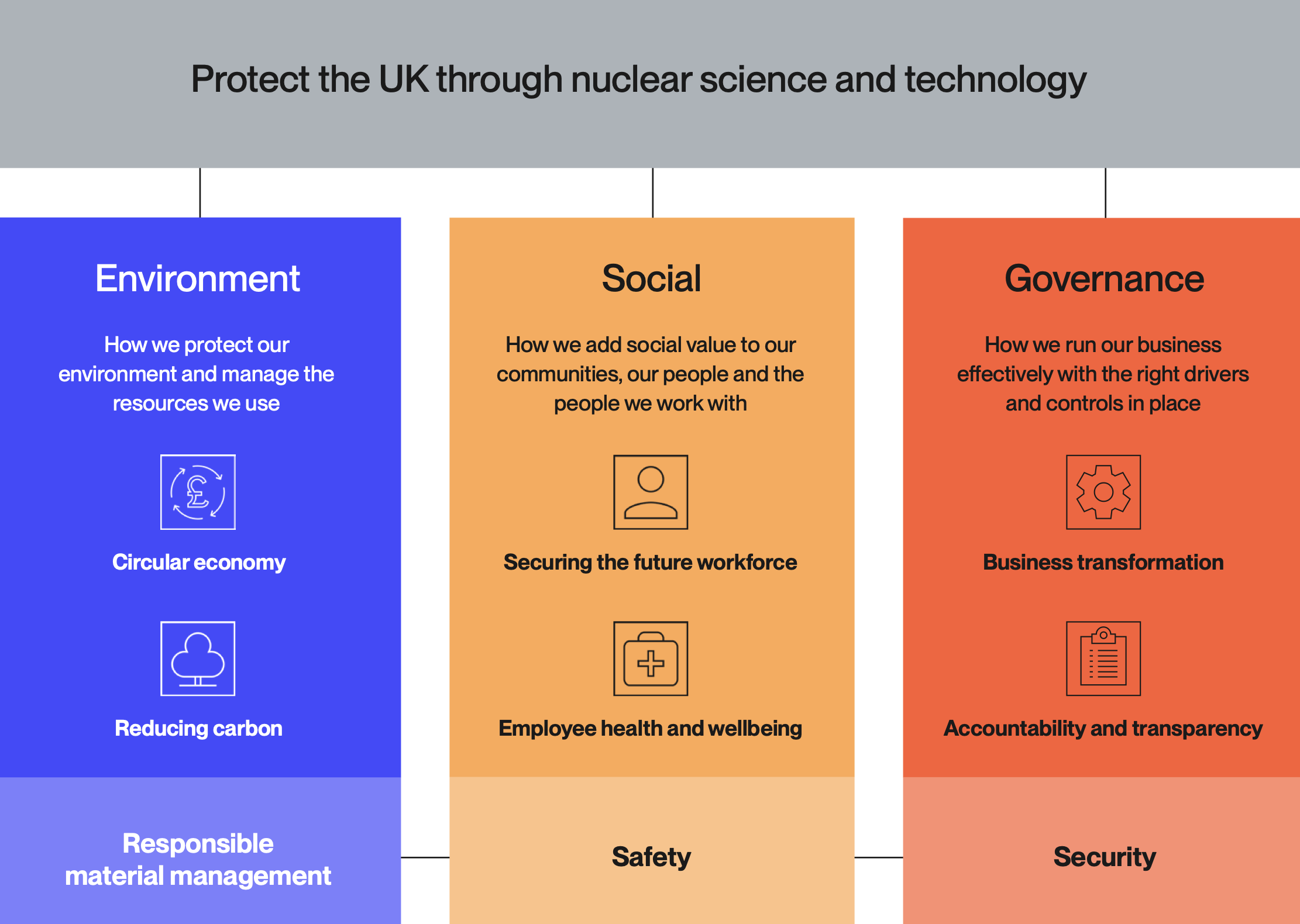
In its second ESG report published last year, the Atomic Weapons Establishment (AWE) said it works "to deliver a secure future for everyone".
"By developing, manufacturing, and maintaining nuclear warheads for the UK’s nuclear deterrent, AWE plays a critical role in guarding against the most significant threats this country faces," wrote Mark Hedges, Executive Director, Estates & Liabilities.
"Through the critical work we do to protect national security, we also have a significant, positive, and far reaching impact on the economy, society, and environment."
The report details how much progress AWE has made in achieving its publicly stated ESG targets.
READ MORE: IBM "Shepherd Test" assesses risk of superintelligence becoming a digital tyrant
Between April and August 2023, it reduced grass mowing across more than 170,000 square metres of land whilst increasing the population of "pollinator-friendly species" and planting an orchard at Burghfield, a not-so-picturesque facility near Reading where warheads are assembled, maintained and decommissioned.
It has carried out a Climate Impacts Risk Assessment, following the MOD methodology, which "assesses our resilience to climate-related risks."
Happily, AWE has also exceeded its target for reducing "controlled waste" from "conventional business functions like construction, demolition, and operations that aren’t radioactive or explosive".
Even better: the environmentally-friendly warhead manufacturer has reduced its use of disposable cups by 50%, as well as initiating an "equipment sharing platform" to let staff "share basic equipment and consumables so they are less likely to purchase new ones".
Shock and AWE: Weapons of ESG Action
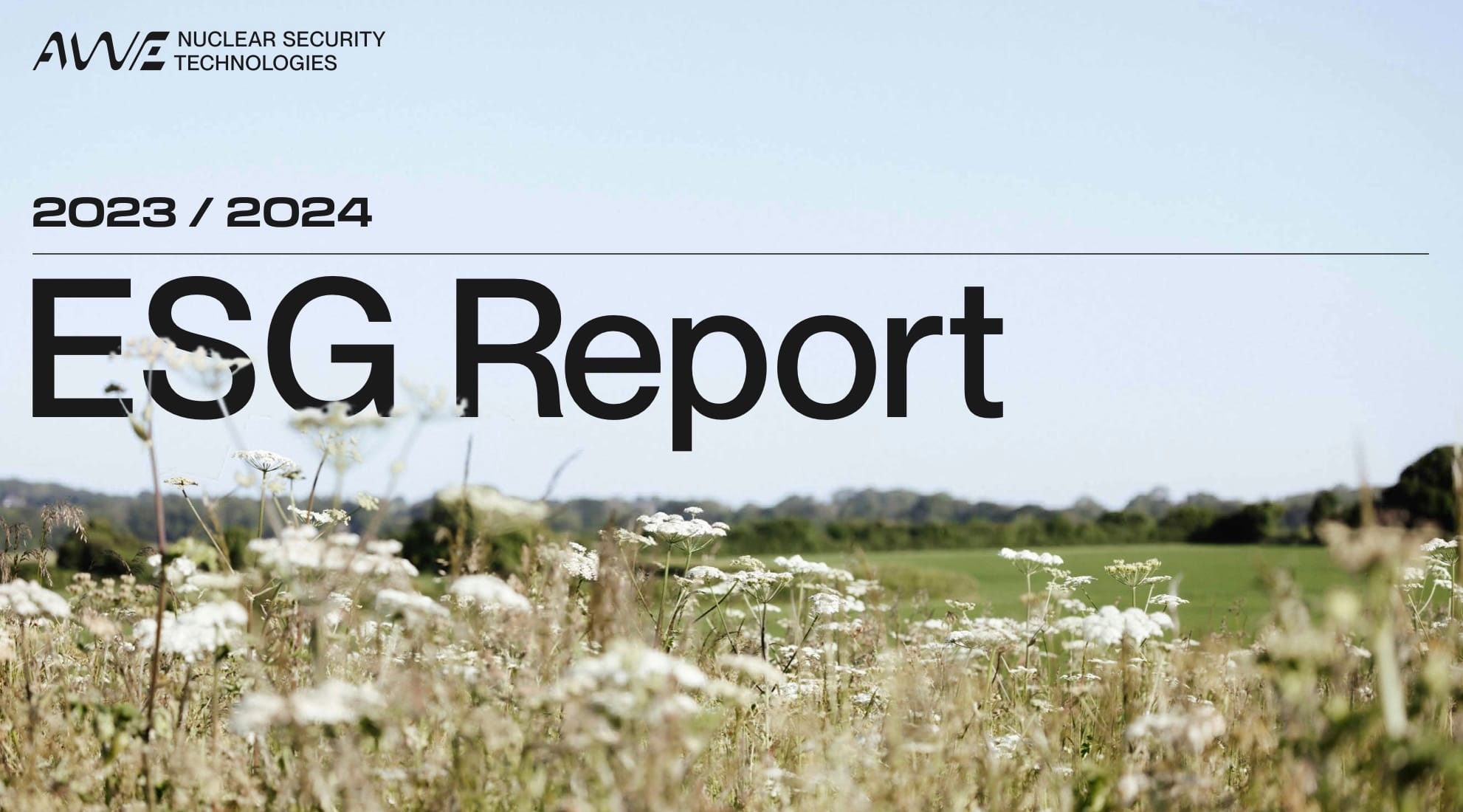
Mental health is also a focus for the organisation that manufactures some of the world's deadliest weapons.
"Our Wellbeing Champions network continues to grow, ensuring every colleague can connect to a specific person they can talk to," the ESG report revealed. "6% of our employees are now Wellbeing Champions."
Last year, AWE achieved many of its ESG commitments by reducing carbon emissions, "inspiring" 50,000 young people through "STEM-based engagements," and reducing the production of radioactive waste.
The annual radiation dose from discharges at AWE Aldermaston and Burghfield is currently less than 0.001 millisieverts (mSv) - far below the UK average background radiation dose of 2.7 mSv per year. Not bad!
However, AWE has pushed back plans to create an ethnicity pay gap report and has not quite completed the task of inviting senior leaders "to share in mentoring circles with individuals from under-represented groups."
Furthermore, 83% of staff have yet to file their diversity data despite the establishment of "Employee Resource Groups" that each represent "a key protected characteristic". Not so good.
READ MORE: OpenAI reveals bid to mitigate "catastrophic" chemical, biological and nuclear risk
"This year, we hit our ethnic minority and gender targets for all our early career hires," AWE added. "We continue to create an inclusive onboarding process, especially for those who are neurodivergent, for whom we offer a wide range of adaptations."
AWE is also expected to achieve net zero by 2050 in line with other government departments.
And what could be a better way to reduce the carbon footprint of our species than a nice big load of nuclear bombs?
We jest, of course. But don't you think it's weird that a nuclear weapons manufacturer would worry about ESG as it builds WMD?
Share your opinions at the address below, where you can also tell us anything you want to share about Britain's nuclear programme.
Do you have a story or insights to share? Get in touch and let us know.

